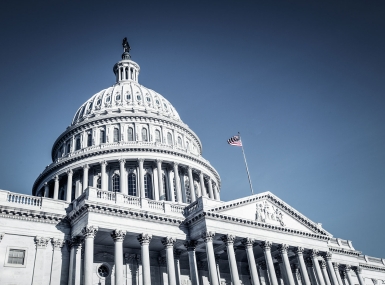White House unveils strategy to fight opioid abuse
Upcoming Events
Related News
White House #opioid plan combines prescription reform, cutoff of the illicit drug supply and increased addiction treatment options
The White House’s follow-up salvo in the fight against opioid misuse, dubbed the “Initiative to Stop Opioid Abuse and Reduce Drug Supply and Demand,” features a three-pronged strategy to address the nation’s opioid epidemic. The initiative focuses on reducing demand and over-prescription of opioids; cutting off supply of illicit drugs; and expanding treatment options for those struggling with addiction.In the White House’s new initiative, which incorporates many of the recommendations put forth by President Trump’s opioid commission in November 2017, specific steps are listed for each of the initiative’s three overarching goals.
Reducing demand and over-prescription: To educate Americans about the dangers of opioids and other drug use and to curb over-prescription of addictive painkillers, the president’s initiative calls for the launch of a nationwide media campaign to raise public awareness about the dangers of prescription and illicit opioid use, as well as other drug use. The initiative also calls for the implementation of a “Safer Prescribing Plan” that would cut nationwide opioid prescription refills by one-third within three years, and would also support a nationally interoperable Prescription Drug Monitoring Program network.
Cutting off the supply of illicit drugs: The initiative calls for a crackdown on international and domestic illicit drug supply chains, in part by securing land borders, ports of entry and international mail shipments against illegal smuggling. The initiative also calls for increased enforcement by the Department of Justice against corrupt or criminally negligent doctors, pharmacies and distributors, and calls for use of the death penalty against drug traffickers, where appropriate under current law.
Helping those struggling with addiction: To help individuals with substance use disorders, the initiative calls for increased supply of naloxone to first responders, expanded access to treatment (including medication-assisted treatment), on-demand access to treatment for veterans and funding opportunities to states and counties to improve nationwide overdose tracking systems that will help facilitate rapid deployment of resources to hard-hit areas.
Notably, the initiative also calls for legislative changes to the law prohibiting federal Medicaid reimbursement for residential treatment at certain facilities with more than 16 beds, and states that the administration will continue to approve state Medicaid waivers on this issue.
Finally, the initiative calls for increased support for offenders struggling with addiction, by giving them access to treatments as an alternative to, or in conjunction with incarceration, or as a condition of supervised release.
The administration’s proposals closely parallel recommendations published in NACo and the National League of Cities’ joint task force report, A Prescription for Action: Local Leadership in Ending the Opioid Crisis, issued in November 2016. The report offers recommendations to help local, state and federal jurisdictions reduce rates of opioid misuse, overdose and fatality, and highlights changes to the Medicaid program, establishment of drug courts and strengthening of Prescription Drug Monitoring Programs as important steps needed in the nation’s fight against the opioid epidemic.
The White House announcement on March 18 follows a November 2017 report of policy recommendations issued by the White House’s opioid commission, which featured multiple proposals aimed at addiction prevention, addiction treatment and drug interdiction. The commission was established by President Trump shortly after his inauguration and was led by former New Jersey Gov. Chris Christie.
Attachments
Related News

County Countdown – June 3, 2025
Every other week, NACo's County Countdown reviews top federal policy advocacy items with an eye towards counties and the intergovernmental partnership. This week features sanctuary jurisdictions, the TAKE IT DOWN Act and more.

County budgets could see impact from federal SNAP reform
Proposed changes to the SNAP program could burden counties with rising administrative costs and cause millions of people to lose access to the nutrition assistance program.
